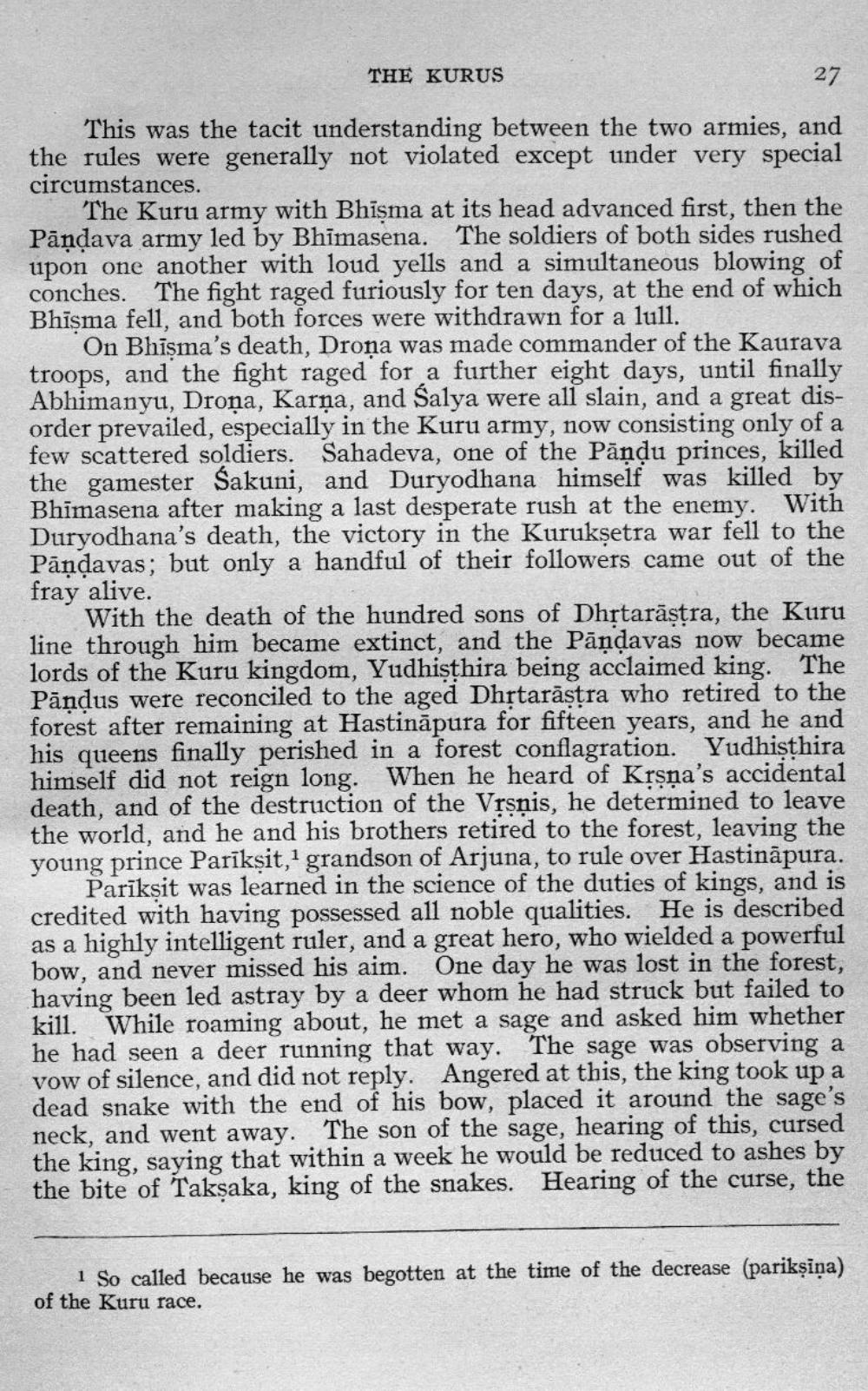________________
27
This was the tacit understanding between the two armies, and the rules were generally not violated except under very special circumstances.
THE KURUS
The Kuru army with Bhisma at its head advanced first, then the Pandava army led by Bhimasena. The soldiers of both sides rushed upon one another with loud yells and a simultaneous blowing of conches. The fight raged furiously for ten days, at the end of which Bhisma fell, and both forces were withdrawn for a lull.
On Bhisma's death, Drona was made commander of the Kaurava troops, and the fight raged for a further eight days, until finally Abhimanyu, Drona, Karna, and Salya were all slain, and a great disorder prevailed, especially in the Kuru army, now consisting only of a few scattered soldiers. Sahadeva, one of the Pandu princes, killed the gamester Śakuni, and Duryodhana himself was killed by Bhimasena after making a last desperate rush at the enemy. With Duryodhana's death, the victory in the Kurukṣetra war fell to the Pandavas; but only a handful of their followers came out of the fray alive.
With the death of the hundred sons of Dhṛtarastra, the Kuru line through him became extinct, and the Pandavas now became lords of the Kuru kingdom, Yudhisthira being acclaimed king. The Pandus were reconciled to the aged Dhṛtarastra who retired to the forest after remaining at Hastinapura for fifteen years, and he and his queens finally perished in a forest conflagration. Yudhisthira himself did not reign long. When he heard of Krsna's accidental death, and of the destruction of the Vrsnis, he determined to leave the world, and he and his brothers retired to the forest, leaving the young prince Parikṣit,1 grandson of Arjuna, to rule over Hastinapura. Parikṣit was learned in the science of the duties of kings, and is credited with having possessed all noble qualities. He is described as a highly intelligent ruler, and a great hero, who wielded a powerful bow, and never missed his aim. One day he was lost in the forest, having been led astray by a deer whom he had struck but failed to kill. While roaming about, he met a sage and asked him whether he had seen a deer running that way. The sage was observing a vow of silence, and did not reply. Angered at this, the king took up a dead snake with the end of his bow, placed it around the sage's neck, and went away. The son of the sage, hearing of this, cursed the king, saying that within a week he would be reduced to ashes by the bite of Takṣaka, king of the snakes. Hearing of the curse, the
1 So called because he was begotten at the time of the decrease (parikṣina) of the Kuru race.




